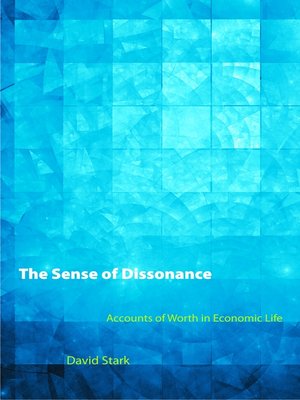
Sign up to save your library
With an OverDrive account, you can save your favorite libraries for at-a-glance information about availability. Find out more about OverDrive accounts.
Find this title in Libby, the library reading app by OverDrive.



Search for a digital library with this title
Title found at these libraries:
| Library Name | Distance |
|---|---|
| Loading... |
What counts? In work, as in other areas of life, it is not always clear what standards we are being judged by or how our worth is being determined. This can be disorienting and disconcerting. Because of this, many organizations devote considerable resources to limiting and clarifying the logics used for evaluating worth. But as David Stark argues, firms would often be better off, especially in managing change, if they allowed multiple logics of worth and did not necessarily discourage uncertainty. In fact, in many cases multiple orders of worth are unavoidable, so organizations and firms should learn to harness the benefits of such "heterarchy" rather than seeking to purge it. Stark makes this argument with ethnographic case studies of three companies attempting to cope with rapid change: a machine-tool company in late and postcommunist Hungary, a new-media startup in New York during and after the collapse of the Internet bubble, and a Wall Street investment bank whose trading room was destroyed on 9/11. In each case, the friction of competing criteria of worth promoted an organizational reflexivity that made it easier for the company to change and deal with market uncertainty. Drawing on John Dewey's notion that "perplexing situations" provide opportunities for innovative inquiry, Stark argues that the dissonance of diverse principles can lead to discovery.







